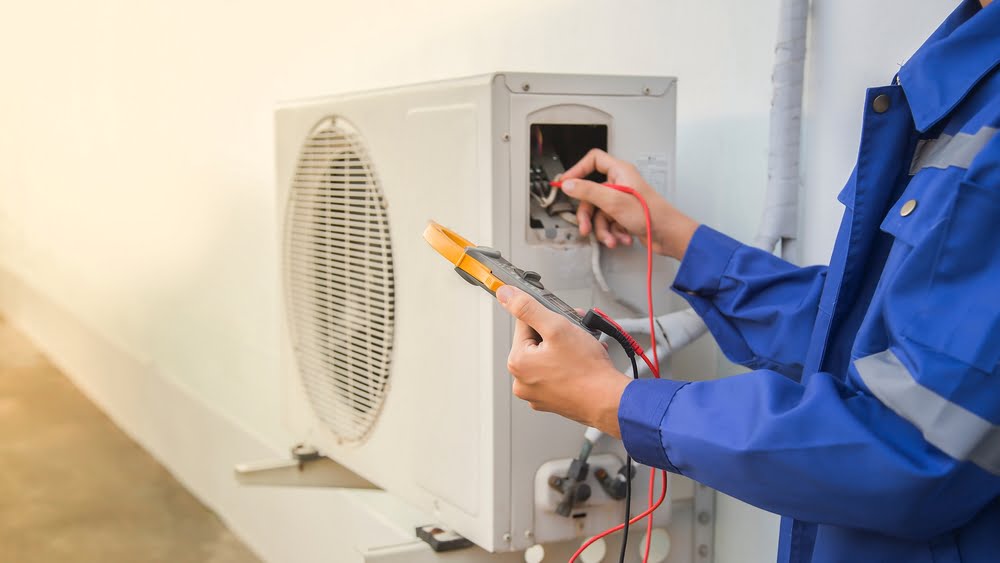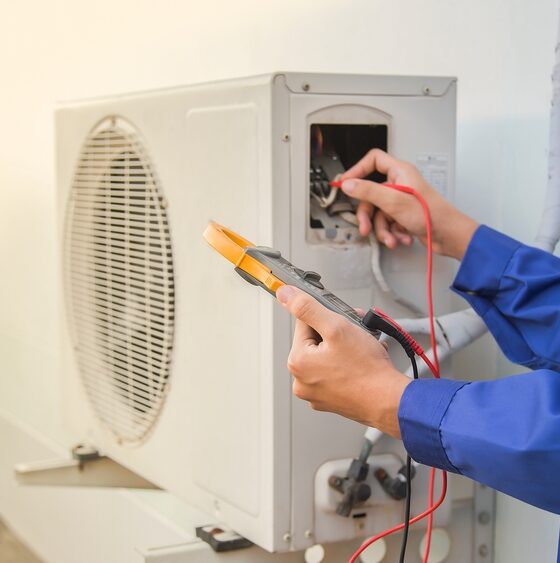

Features
Reasons Why Heat Pumps Are Good for the Environment
Discussions about climate change are gaining more traction than ever. A recent report in The Atlantic shows that fighting climate change has become profitable even though it used to be costly.
There are a lot of things that we can do to fight climate change. One is to use heat pumps to make homes eco-friendlier.
Why Are Heat Pumps Good for the Environment?
It’s common knowledge that rising carbon dioxide emissions aren’t doing anything positive for our environment. We’re seeing changing global weather patterns, rising sea levels, and drought and dry conditions advancing in many areas. They are also a major cause of climate change that could lead to the extinction of some species and threaten others with new or different threats to their lifestyle.
And a lot of this carbon emission comes from how we heat our homes. In fact, 17.5% of global greenhouse gas emissions come from energy use in buildings. This includes the energy we use for appliances and, more importantly, for heating. In addition to being more aware of how we use our energy, we’re trying to step it up to do things that reduce our carbon footprint, albeit slowly.
And there’s one piece of technology that many homeowners don’t know about that has actually been around for decades that can help make drastic changes to the climate trajectory we’re on. That one tech is heat pumps.
Why are heat pumps good for the environment? Keep reading to learn more.
What Are Heat Pumps?
In the past decade, we’ve been given more options for heating and cooling our homes than ever before. Many of these newer options are environmentally friendly alternatives and more energy efficient compared to traditional systems. Yet, the majority of homes still continue to use fossil fuels, such as oil, coal, and gas, to heat their homes.
Heat pumps, for example, run on electricity and can save you up to 7 metric tons of carbon emissions annually. And the benefits don’t just stop there. They’re also up to 4x more energy efficient than a modern gas boiler, have a longer lifespan, don’t require extensive maintenance, and help save on your annual energy bill. But how do they do this?
Heat pumps collect heat rather than generate it, making them incredibly efficient. They work by extracting heat from a source using a fluid, like a refrigerant. This source is often the air, ground, or water. Then the heat is transferred into buildings through ducts to either cool them or warm them.
Based on the source, there are different types of heat pumps. These include air-source heat pumps, ground-source heat pumps, and water-source heat pumps. The different types make it easy to find a heat pump that best suits your home. And each type only uses a small amount of electricity to achieve energy efficiency rates between 300% to 400%.
The Rise in Heat Pumps
Heat pumps have especially been on the rise in Europe after a series of cold winters, an increase in electricity prices, grants, and bans on old boilers. Today, Norway is, by far, the leader in the race and has been installing heat pumps since the beginning of the millennium. By 2019, more than 1.2 million units had been sold in Norway. That’s one heat pump for every 4 people!
To put that number into perspective, the UK has one heat pump for every 240 people. But the good news is, the installation rate of heat pumps in the UK has been increasing annually. By 2028, the UK aims to have 600,000 new installations a year. To reach this, the UK government has introduced schemes and grants to encourage and help more homeowners to transition to heat pumps.
So, if a heat pump sounds so great, why don’t more people already have them?
Well, some of the reasons, as seen in the UK, include there just not being enough installers, poor insulation, and a lack of high-carbon electricity supply. But another reason has to do with the high upfront costs.
Heat Pumps Can Help Save the Planet, But Can They Save You Money?
There’s no getting around the fact that heat pumps have a high upfront cost to install in your home. They could set you back anywhere between £8,000 and £35,000 depending on the type of heat pump you install, the climate you live in, and the cost of energy from your provider.
But stay with us when we say that heat pumps can indeed save you money. Because what most people don’t understand is that you can pair your heat pump installation with a subsidy from the government and recoup the other costs through energy savings and carbon savings.
Take, for example, the average household in the UK switching from old electric storage heaters to a ground source heat pump. Then you could be saving as much as £2,500 every year on your energy bills and 3,300 kg on CO2. This is one of the reasons that the American Northeast has started relying more on them. Even if you’re switching from an old gas boiler (G-rated), you’d still be saving £870 every year on energy and 4,400kg on CO2. These savings numbers already account for the fact that gas is currently much cheaper than electricity.
And the reason why you’re able to save so much on the running costs despite the electricity energy costs being higher than gas is because of how energy-efficient heat pumps are. For every pound you spend on energy, a heat pump can return 4x that amount of energy. Yes, you read that right.
The Future of Heat Pumps and Why They Are Good for the Environment
The next time you’re in the market for a new central heating system, ask your heating engineer if your home is fit for installing heat pumps. They will play a huge role in shaping a low carbon economy. Because the future of heat pumps is clear: they’re here to stay and will continue to make it onto government agendas as we prioritize reducing our environmental impact.
Being aware of your options is a good first step, but it’s not nearly enough. Our next big challenge is to actually take action, and when it comes to how we heat our homes. The future of how we use heat pumps to our advantage is in our hands.






























